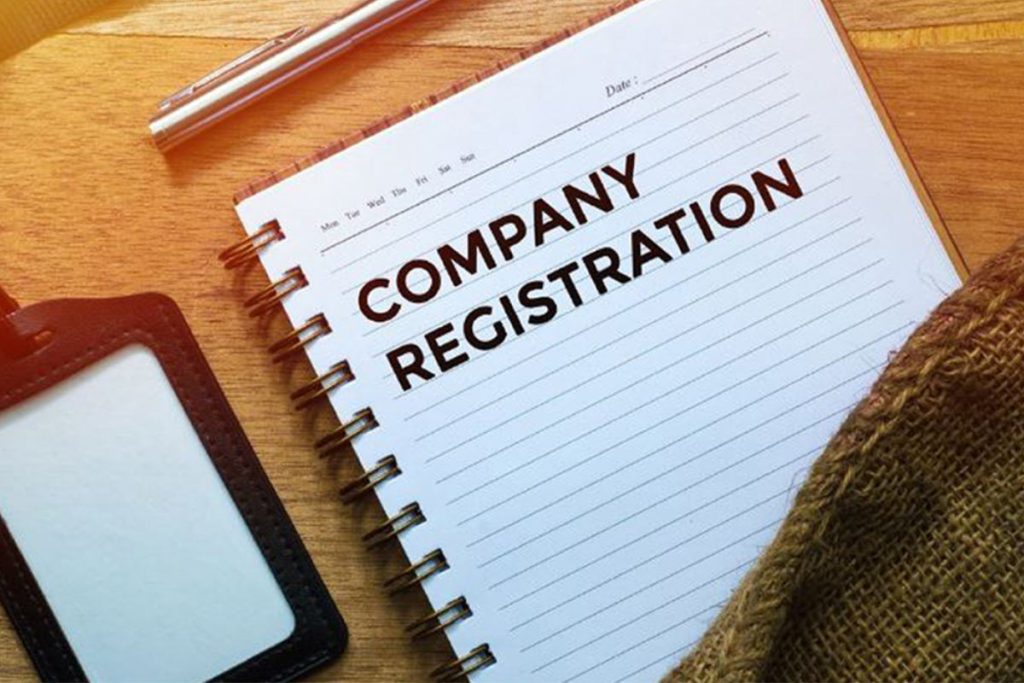+968 9596 3381
Phone Number
[email protected]
Email Address
Mon - Thu: 8:00 - 5:00
Online store always open
Phone Number
Email Address
Online store always open
WhatsApp Us Today
Drop Us an Email Today
Google Map Location
Saturday to Thursday

So, you’re ready to start a business in Oman? Great choice. But before you pop the champagne and launch your website, there’s one crucial step you can’t skip—permits.
A trade license might give you the green light to operate legally, but depending on your business activity, you’ll need to obtain several sector-specific permits from various government bodies. Oman’s business framework is well-organized, but compliance is non-negotiable.
This detailed guide will walk you through every permit you might need—whether you’re opening a restaurant in Muscat, starting an e-commerce business, setting up a warehouse in Sohar, or launching a consulting firm. From environmental clearances to import/export codes and labor approvals—we’ve got you covered.
Permits are not red tape—they’re your legal shield. They validate that your business complies with:
Industry regulations
Municipal and safety standards
Tax, labor, and social insurance laws
Sector-specific health, environmental, or educational requirements
Operating without a proper permit in Oman can result in heavy fines, license suspension, or business closure. Moreover, it can block access to funding, prevent you from importing goods, and limit participation in public tenders.
Issued by the Ministry of Commerce, Industry and Investment Promotion (MoCIIP), this is your foundational license. You can’t run a business without it. Think of it as your business passport.
But in most cases, it’s just the beginning…
Depending on your business activity, you’ll need additional approvals. These vary across sectors and locations. Some permits must be secured before the trade license is issued, others after.
MoCIIP – Trade licenses, industrial activity codes, CR
Municipality (e.g. Muscat, Sohar) – Premises approvals, food licenses
Ministry of Environment – Environmental clearance, waste permits
Ministry of Labor – Labor cards, Omanization quotas
Royal Oman Police (ROP) – Fire safety, civil defense, signage
Chamber of Commerce – Membership registration
Tax Authority – VAT, corporate tax registration
Customs – Import/export permits
Sectoral Ministries – e.g. Health, Education, Tourism, Agriculture
Each of these may issue or verify specific permits linked to your commercial activity.
Let’s break down the permits that most businesses need:
Issued by your local municipality, this confirms your business premises is fit for operation. Required for almost every business—retail, office, warehouse, or restaurant.
You must submit a lease agreement
Property must be zoned for commercial use
Civil defense and sanitation inspections may be required
Includes signboard permit
Processing Time: 2–5 days
Cost: Varies (typically OMR 20–100 annually)
If your business earns more than OMR 38,500/year, you are legally required to register for VAT with the Tax Authority.
Online registration via the Oman Tax Portal
File quarterly returns
Maintain invoices and purchase logs
Penalty for non-compliance: Up to OMR 5,000
To hire foreign staff, you must obtain a labor clearance:
Submit list of job roles
Prove efforts to recruit Omanis (Omanization compliance)
Pay labor card fees
Cost: OMR 301–1,001 per expat employee depending on designation
Mandatory for all businesses. Required during bank account setup, government tender applications, and trade license renewals.
Membership certificate must be renewed annually
Cost depends on company capital
Fees: OMR 30–200
Issued by Royal Oman Police – Civil Defense Department, this is a must for businesses with public premises (restaurants, warehouses, offices):
Submit floor plans and fire exit strategy
Install approved fire extinguishers and smoke alarms
Get an on-site inspection
Timeline: 2–10 working days
Cost: Typically OMR 20–100 (for inspection + equipment compliance)
Municipal Health Permit: Food safety inspection, pest control documentation, kitchen hygiene checks
Civil Defense Fire Approval
Staff Medical Certificates: For all food handlers
Food Import Permit: If bringing in food from overseas
Authority: Local municipality, Ministry of Health, Oman Customs
Cost: OMR 100–300
Retail Activity Permit via MoCIIP
Signboard & Branding Approval from Municipality
Product Registration for cosmetics, food, or medicine
Cost: Varies (average OMR 150–500 annually)
Approval from Ministry of Education or Higher Education
Premises compliance: Classrooms, fire exits, etc.
Curriculum verification
Timeline: Up to 30 days
Additional requirement: Hire qualified teachers with certified degrees
Vehicle Import & Registration (ROP)
Transport Activity Permit
Warehouse Approval & Inspection
Special rules apply if transporting chemicals or hazardous materials.
Health License from Ministry of Health
Pharmacist License (for pharmacies)
Medical Equipment Clearance
Cost: High. Setup can cost OMR 5,000–10,000+ due to inspection intensity.
If you plan to import goods, you need:
Import/Export Code from Royal Oman Police (ROP)
Customs Registration
Product-specific permits (e.g. cosmetics, supplements, electronics)
Additional fees apply for restricted goods, like:
OMR 5–50 per shipment depending on category
CITES permits for protected items (like exotic fish or rare woods)
Required for:
Manufacturing and industrial setups
Farms and aquaculture
Construction and real estate projects
The Ministry of Environment and Climate Affairs will request:
Environmental Impact Assessment (EIA)
Site layout
Waste management plan
Timeline: 2–6 weeks
Cost: OMR 300–1,000 depending on complexity
Even online businesses need permits:
E-commerce activity permit from MoCIIP
Tax registration for VAT collection
Cybersecurity clearance (if handling sensitive data)
Optional but recommended:
Bank payment gateway approval
Logistics partner agreements (for shipping)
Create an account on investeasy.gov.om
Submit CR and license details
Attach required documents (PDF)
Track permit status online
Platforms like SetupInOman.com and local law firms handle the entire process—including trade license, PRO services, permits, and compliance checks.
This is highly recommended for foreign investors or complex setups.
| Business Type | Estimated Permit Cost (OMR) | Notes |
|---|---|---|
| Small Retail Store | 300–700 | Trade license, signage, municipality |
| Restaurant/Cafe | 700–1,500 | Health + food permits + civil defense |
| Consulting Firm | 400–800 | Trade license + Chamber + lease |
| Import/Export Company | 600–1,200 | Customs code + tax + warehouse |
| E-Commerce Business | 350–700 | Digital permit + VAT + CR |
| Clinic/Pharmacy | 5,000–10,000+ | MOH licenses + premises + staff approval |
Permits usually have annual validity and must be renewed alongside your commercial registration (CR). Some critical reminders:
Update lease agreements and submit to Municipality
Renew Chamber membership
Ensure fire safety compliance
File VAT returns quarterly
Maintain staff health records
Failure to renew may result in fines, late fees, or automatic cancellation of your business license.
Launching a business in Oman is rewarding—but only if done right. Securing your required permits is more than just red tape—it’s your gateway to operating legally, earning customer trust, and scaling your business.
To recap:
Begin with a commercial registration (CR) and trade license.
Secure supplementary permits based on your sector—municipal, health, labor, fire, customs, environment, or education.
Use the InvestEasy portal or expert consultants to streamline the process.
Stay compliant by renewing your permits on time and meeting Omanization targets where applicable.
Do it right from the start—and you’ll avoid penalties, speed up approvals, and unlock every benefit Oman has to offer.
1. Do all businesses in Oman need permits beyond the trade license?
Yes. Most require at least one additional permit—municipal, labor, or fire safety—depending on the nature of the business.
2. How long do permits in Oman take to process?
Basic permits take 2–10 days. Sector-specific approvals like health or education can take up to 30 days or more.
3. Can I apply for business permits online?
Yes. Most permits can be requested through the InvestEasy portal. However, complex cases may need in-person submissions or inspections.
4. What happens if I don’t get the required permits?
Penalties include fines, business closure, blacklisting, or denial of future applications.
5. Do Free Zone businesses need permits too?
Yes. Free Zones like Sohar or Salalah have their own authorities but still require municipal, tax, labor, and customs permits based on activity.




Omanization is the government’s policy of replacing expatriate workers with trained Omani nationals. Every licensed business is subject to Omanization quotas that vary by sector.
Before hiring foreign staff, businesses must:
Submit a labor quota request to the Ministry of Labor
Provide proof of attempts to recruit Omanis (advertisements, interview logs)
Obtain Labor Clearance before issuing a labor visa
| Sector | Omanization Requirement |
|---|---|
| Construction & Contracting | 10–15% |
| Retail & Wholesale | 20–25% |
| Real Estate & Insurance | 35% |
| Manufacturing & Industry | 15–30% |
| IT & Telecom | 25% |
Tip: Non-compliance can block you from hiring expats or renewing your trade license.
For businesses planning short-term operations like:
Event planning companies
Trade fairs and exhibitions
Temporary food trucks or kiosks
Construction site operations
You may apply for temporary permits, which are valid from 30 days to 6 months.
These typically involve:
Short-term lease approval
Municipality inspection
Proof of insurance
Health and safety compliance
Best For: Startups testing market entry or businesses involved in seasonal industries like tourism or agriculture.
Yes, they do.
Even if your business is fully remote or doesn’t operate a physical store, you must obtain:
E-commerce activity approval
Trade license (Commercial Registration)
Municipal No-Objection Certificate (NOC) for virtual address
VAT registration if revenue crosses the legal threshold
If you’re handling customer data or online payments, you may also require:
Cybersecurity compliance certificate
Oman Telecommunications Regulatory Authority (TRA) approval (for some tech startups)
Foreign investors establishing businesses in Oman can apply for:
Investment License: Grants long-term business rights
Investor Visa: Allows the business owner to reside and work in Oman
Golden Residency (for high-investment projects)
Requirements:
Minimum investment capital (OMR 150,000+ for most activities)
Clean criminal record
Valid CR and trade license
Office or operational lease
Authority: MoCIIP & Ministry of Interior
Processing Time: 1–4 weeks
Most permits in Oman are valid for 1 year and require timely renewal. Authorities often send reminders, but responsibility lies with the business owner.
Ensure lease or tenancy agreement is up to date
Clear all pending tax dues
Renew Chamber of Commerce membership
Submit renewal form through InvestEasy or with PRO assistance
Pay renewal fees
OMR 50–1,000 fine depending on permit type
Temporary business suspension
Blacklisting or legal action (in severe cases)
| Problem | Solution |
|---|---|
| Wrong activity code on trade license | Double-check with MoCIIP’s OSIC activity list |
| Delays in environmental clearance | Hire certified EIA consultants early in the process |
| Office in non-commercial zone | Get landlord confirmation and municipality pre-approval |
| Ignoring Omanization quotas | Plan workforce mix in advance |
| Missing notarized documents | Always use certified legal translators and PROs |
Pro Tip: Use business setup professionals like SetupInOman.com to avoid these pitfalls.
As Oman modernizes its economy, expect these developments:
More online permit applications through unified portals
Blockchain-based license verification
Digital IDs for companies and employees
Streamlined approval for green and sustainable businesses
Expanded incentives for tech startups and R&D firms
Oman Vision 2040 places strong emphasis on entrepreneurship, automation, and SME growth, which means licensing and permit procedures will continue becoming more efficient and transparent.
Maintain active business operations
Renew business license annually with MOCIIP
Renew residency visa as per the issued duration
Maintain minimum shareholding or capital
Submit audited financials (especially for premium tracks)
Failure to meet ongoing compliance can result in visa revocation.
Launched in 2021 and expanding in 2025, the Golden Visa offers high-net-worth individuals the option to secure 5–10 year residencies based on:
Large-scale business investments
Real estate investments
Job creation for Omanis
Social contributions
It is ideal for investors seeking longer stays, greater flexibility, and enhanced privileges.





Let us handle your company registration, office setup, and licensing to ensure a seamless process.
Oman encourages foreign investment across a wide range of sectors. Choosing the right industry can streamline both business approval and residency visa eligibility.
Top Sectors for Investment-Based Residency in 2025:
Tourism & Hospitality: Establish hotels, desert camps, or travel services aligned with Vision 2040 tourism growth.
Logistics & Transportation: Leverage Oman’s location to operate cargo, warehousing, or port services.
Renewable Energy: Solar and wind energy startups receive strong government backing and incentives.
Technology & IT Services: Ideal for app development, SaaS, e-commerce, and fintech.
Education & Training: Open institutes, tutoring centers, or skill development facilities in partnership with local bodies.
Healthcare & Wellness: Clinics, diagnostics labs, and wellness centers are in growing demand.
Each of these sectors has its own licensing pathway, and many qualify for foreign ownership exemptions.
Residency via business investment is allowed in both mainland Oman and designated free zones, though their benefits differ.
Direct access to local market
Wider sector coverage
Eligible for all visa types
0% corporate tax for a limited period
Full repatriation of profits
100% foreign ownership
Dedicated infrastructure and customs benefits
However, not all free zone businesses qualify for long-term residency, so careful planning is required.
Investor residency visas are typically issued for 2 to 10 years, depending on the investment type and visa class. Here’s how to ensure smooth renewals:
1. Maintain Active Business Operations
Dormant or non-operational companies may lead to rejection.
2. Renew All Business Licenses on Time
Delays in commercial registration (CR) or tax filings can affect visa status.
3. Maintain Minimum Capital & Shareholding
Any drop below the qualifying investment threshold may void your eligibility.
4. Submit Annual Audited Financials
Especially relevant for Golden Visa holders or companies with employees.
Oman allows long-term residency through both real estate ownership and direct business investment.
| Factor | Business Investment | Real Estate Ownership |
|---|---|---|
| Residency Duration | 2–10 years | 5–10 years |
| Eligibility for Employees | Yes (under your company) | No |
| Control Over Operations | Full business ownership | Property only |
| Income Potential | High (profits, contracts) | Rental yield |
👉 For entrepreneurs and job creators, business investment offers more flexibility, while real estate is better for passive investors.
1. Delayed Security Clearance
Solution: Begin documentation early and avoid errors in name/passport submissions.
2. Commercial Activity Restrictions
Solution: Verify sector eligibility with MOCIIP before incorporation.
3. Difficulty Opening Bank Accounts
Solution: Work with local business consultants who can guide you through preferred banking channels.
4. Lack of Office Space
Solution: Consider virtual or co-working options approved by the Ministry.
5. Visa Application Rejection
Solution: Ensure proper translation, attestation, and compliance at each step; consult legal advisors if necessary.
Relocation involves not only the legal process but also adjusting to life in a new country. Here’s what investors should plan:
Housing: Residential properties are widely available in Muscat, Sohar, and Salalah.
Schooling: Reputed international schools (British, Indian, IB) for expat children.
Transport: Private vehicles are common; taxis and limited public transport in major cities.
Healthcare: Access to private hospitals with expat-friendly services.
Lifestyle: Calm, family-oriented environment with low crime and high quality of life.
While Oman has no personal income tax, businesses are subject to certain obligations:
Corporate Tax: 15% flat rate on profits
VAT: 5% applicable on most goods and services
Withholding Tax: 10% on certain cross-border payments
Foreign investors must register with the Oman Tax Authority and file annual returns. Tax compliance directly impacts visa renewals and business continuity.
| Feature | Standard Investor Visa | Golden Visa |
|---|---|---|
| Investment Required | OMR 20,000 – OMR 50,000 | OMR 250,000+ |
| Duration | 2–5 years | 5–10 years |
| Fast Track Processing | No | Yes |
| Real Estate Option | Not applicable | Available |
| Access to Government Deals | Limited | Broader participation possible |
If you’re looking to settle long-term with minimal visa renewals and expanded rights, Golden Visa is your best option.
Once your business is operational, you may hire staff and sponsor employee visas under your company:
Steps to Sponsor Employees:
Register your company with the Ministry of Labour
Apply for a Labour Clearance for each job title
Process visas via the Royal Oman Police
Issue contracts and maintain payroll compliance
Ensure annual labor card and insurance renewal
This is a major benefit of investment-based residency, as it allows entrepreneurs to build and scale their team directly.
Choosing the wrong business structure for your sector
Failing to maintain minimum capital in your corporate account
Attempting to work under a tourist visa while awaiting business formation
Using a PO box as your only registered address
Not translating or notarizing documents as per Omani law
✅ Pro Tip: Work with local specialists to ensure you’re not overlooking any regulatory nuance — especially in sectors like finance, tech, or real estate.


At setupinoman, we specialize in assisting businesses with establishing their presence in Oman. Our services include:
Business Registration & Licensing – Handling all MoCIIP applications and approvals.
Legal Documentation & Compliance – Ensuring smooth document translations and notarization.
Banking & Office Setup – Helping businesses secure bank accounts and office leases.
Visa & Employee Services – Managing work permits and Omanization requirements.
What is the minimum investment required to qualify for a residency visa in Oman?
The minimum investment typically starts from OMR 20,000 for standard investor visas. However, the Golden Visa program requires investments starting from OMR 250,000.
Can I own 100% of my business in Oman as a foreign investor?
Yes, Oman allows 100% foreign ownership in most sectors, especially under the Foreign Capital Investment Law. Some regulated sectors may require local participation.
Is real estate investment enough to obtain a residency visa in Oman?
Yes, under the Golden Visa category, purchasing property worth at least OMR 250,000 can qualify you for long-term residency.
What is the difference between the Golden Visa and the Standard Investor Visa?
Golden Visas offer longer residency terms (5–10 years), faster processing, and broader eligibility, while Standard Investor Visas require lower investment but shorter duration and renewals.
How long does the investor visa process take?
On average, it takes 4 to 8 weeks, depending on security clearance, company registration, and documentation accuracy.
Can I apply for residency before launching my business?
You must complete company registration and capital deposit before applying for the residency visa under the business investor category.
Is it necessary to open a corporate bank account in Oman for this process?
Yes, you need to deposit the minimum share capital into a corporate account to receive the capital deposit certificate, which is essential for visa processing.
Are there any age or nationality restrictions for investor visas?
There are no age restrictions, and citizens from most countries are eligible, although background checks and financial verification are required.
Do I need a physical office in Oman for my business registration?
Yes, a registered office address is mandatory — this can be a virtual office, shared workspace, or physical premises, depending on your business type.
What types of businesses are best for investment-based residency?
Tourism, tech, healthcare, logistics, real estate development, and manufacturing are some of the most attractive sectors for foreign investors.
Is free zone investment also eligible for residency visas?
Yes, businesses established in Oman’s free zones like Duqm or Salalah can qualify, though some limitations apply based on visa type and activity scope.
Can I bring my family with me under an investor visa?
Yes, investor visa holders can sponsor family members including spouse and children, subject to documentation and proof of income.
What are the key documents required for an investor visa application?
Passport copies, security clearance, MOA, business license, capital deposit certificate, tenancy contract, and recent photographs are commonly required.
Do I need to hire local employees?
While not mandatory in all cases, certain sectors may require a minimum Omanization rate to qualify for full operational licensing and staff visa issuance.
What happens if I close my company after receiving the residency visa?
Your visa may be cancelled unless you transfer your sponsorship or obtain a different qualifying residency basis (e.g., real estate or employment).
How long is the investor visa valid?
Standard visas are issued for 2–5 years and renewable; Golden Visas are valid for 5 or 10 years, depending on the investment category.
Can I operate multiple businesses under one investor visa?
Yes, but you must ensure each entity is properly registered, and you hold a qualifying ownership percentage in each.
Are there any tax advantages for foreign investors?
Oman offers no personal income tax and competitive corporate tax rates (15%). Free zones also offer tax holidays for up to 10 years.
Can I change business activities after obtaining a visa?
Yes, but you must update your commercial registration and possibly re-obtain approvals or licenses depending on the new activity.
Is a local sponsor required for mainland businesses?
Not anymore in most sectors. Since the law change in 2020, most businesses can be 100% foreign-owned without requiring a local partner.
How do I maintain my visa status if I spend time abroad?
Investor visas typically allow you to spend time abroad, but extended absence (6+ months) may affect renewal or validity, unless explained.
Are digital or online businesses eligible?
Yes, tech and e-commerce businesses are highly encouraged and eligible for both investor and long-term residency options.
Do I need to show ongoing revenue to maintain the visa?
Not always, but inactivity or lack of compliance may risk rejection during renewal. Annual filings and proof of operation are recommended.
Can I apply for residency through an existing business I acquire?
Yes, provided you meet ownership thresholds and the business is compliant with all legal, tax, and licensing requirements.
What is the role of the Oman Investment Authority in this process?
OIA supports large-scale strategic investments, especially in sectors aligned with Vision 2040. Smaller businesses work mainly with MOCIIP and ROP.
Is the visa tied to one company or can I invest in multiple?
You can invest in multiple companies, but your primary residency visa will be tied to the company where you have majority stake or initial approval.
Do I need health insurance for the investor visa?
Yes, valid health insurance is a prerequisite during visa application and renewal processes.
How much capital is required for the Golden Visa through real estate?
You must invest at least OMR 250,000 in approved properties; for 10-year visas, the amount increases to OMR 500,000 or more.
What is the role of the Royal Oman Police (ROP) in this process?
ROP handles visa issuance, background verification, residency cards, and security clearances.
Can I get citizenship through business investment in Oman?
Currently, Oman does not offer direct citizenship-by-investment programs. However, long-term visa holders may be eligible for permanent residency or naturalization under exceptional circumstances.
Fill out our quick and easy contact form below. Briefly tell us about your vision and goals, and we’ll be in touch shortly to discuss a personalized plan for your success.
Al-Khuwair, Muscat, Sultanate of Oman